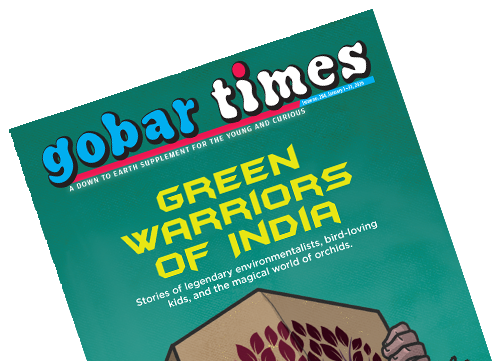
GSP Audit encourages schools to benchmark, improve and monitor their environmental practices. Some schools have reached the goals of resource efficiency and minimum waste generation by making changes in their practices at the school level. It is now time for all schools to put their best foot forward.

A walk on the beach is an insight not just into our leisure but also into our addiction to plastic. More than 80 lakh tonnes of plastic is dumped into the oceans every year. Sea creatures often mistake plastic for food and die because of it. Sea turtles are probably the most gullible creatures of the sea. Why? Well, that’s because they are likely to confuse plastic floating in the ocean for food and eat it, says a recent article published in the Science News magazine. However, in the poor creature’s defense, they are not the ones filling our oceans with plastic...

Learn how to create a mini aquarium model and watch the vibrant colours of the sea enhance the look of your house

Mahatma Gandhi was no stranger to the problems of waste and he dedicated his entire life urging individuals to shun wasteful consumption. Here are a few schools that are living the Gandhian values of mindful consumption and efficient resource use. India is drowning in waste. Every year we generate 62 million tonnes (MT) of waste and half of it ends up in landfills. Of the total waste collected, only 19 per cent undergoes treatment. This is the dismal state of waste management in our country today. Mahatma Gandhi was no stranger to the problems of waste and he dedicated his entire life urging individuals to shun wasteful …

What tigers eat and the space they occupy protects the health of their entire ecosystem.

The coastal state of Maharashtra has three major rivers and several lakes, making it one of the few states in India having a vast water bank. However, most of its water bodies, including the Godavari, Krishna and Tapti rivers, are so polluted that they look like nullahs or drains. Heard about the Jayanthi and Gomati nullahs of Kolhapur? Well, according to water conservationist Rajendra Singh, they were once a water source but today we call them nullahs.

The little things in life are easy to misplace. What's even easier is to lose them. Here's a way to find all your little belongings at one place and make sure that you don't lose them. Step 1: Take a rectangular cardboard box with a lid. You can use a discarded shoebox from the house. Step 2: Open the lid of the shoebox and measure its height with the help of a scale. Note the reading. Step 3: Take the leftover cylindrical cardboard from a finished roll/sheet of aluminum foil and cut it into smaller parts... Read more here.

